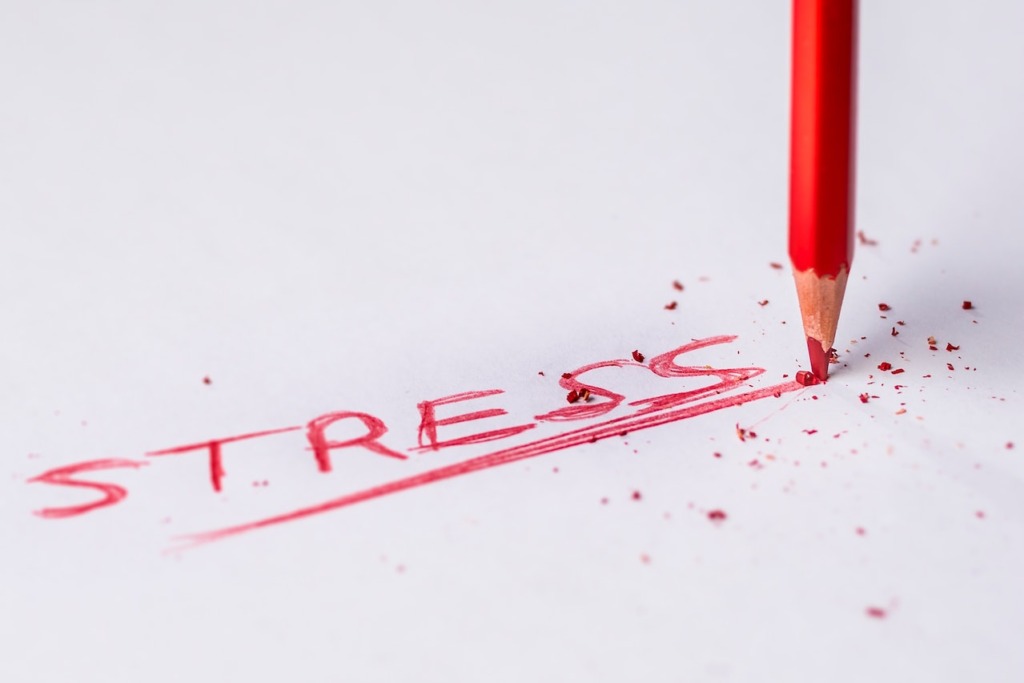Acute stress disorder is a mental health condition that affects individuals who have experienced or witnessed a traumatic event. This disorder can cause intense anxiety, fear, and other symptoms that impact an individual’s daily life, making it difficult for them to function normally. If left untreated, acute stress disorder can develop into post-traumatic stress disorder (PTSD), which is why early diagnosis and treatment are crucial.
Imagine waking up in the middle of the night, drenched in sweat, with your heart racing faster than you’ve ever felt before. You’re struggling to breathe and feel like you’re about to die. That was what happened to Mary, a friend of mine after she was involved in a car accident. She thought she had put the incident behind her until these symptoms began appearing frequently. Mary didn’t realize at first that this was more than just a normal reaction to a traumatic event – it was acute stress disorder taking hold of her mind and body.
In this article, we will explore the causes, symptoms, and treatments available for those diagnosed with acute stress disorder. We’ll also look at how someone like Mary sought help from professionals and overcame her struggles with ASD through therapy and medication management.
By understanding this common yet often overlooked mental health condition better, we hope to raise awareness among readers so they can recognize when they or somebody close to them might be exhibiting signs of ASD as well as provide valuable information on getting appropriate care should they need it.

Causes Of Acute Stress Disorder
Some people believe that acute stress disorder is not a real condition and dismiss the symptoms as simply being a reaction to stressful events. However, research has shown that acute stress disorder is a serious mental health issue that can have long-term effects if left untreated. So, what are the causes of acute stress disorder?
- Natural Disasters: Natural disasters such as earthquakes, hurricanes, or floods can be extremely traumatic and lead to the development of ASD in individuals directly affected by these events.
- Accidents: Being involved in or witnessing a serious accident, such as a car crash or workplace incident, can result in Acute Stress Disorder.
- Assault or Abuse: Physical or sexual assault, domestic violence, or any form of abuse can be traumatic and may lead to the development of ASD.
- War and Combat: Military personnel who have experienced combat situations are at a higher risk of developing Acute Stress Disorder due to intense and prolonged exposure to traumatic events.
- Medical Emergencies: Severe medical emergencies, such as life-threatening illnesses or surgeries, can trigger ASD in some individuals.
Other risk factors include having a history of anxiety disorders, depression, or other mental health conditions; lack of social support after the traumatic event; and genetics. Additionally, how an individual copes with the aftermath of the trauma can also impact their likelihood of developing ASD. Those who use maladaptive coping mechanisms like substance abuse or avoidance behaviors are likelier to develop the disorder than those who utilize healthy coping strategies.
Overall, it’s crucial to understand that acute stress disorder is not something made up or exaggerated. Trauma affects individuals differently and can lead to severe psychological distress for some people. Recognizing the potential causes of ASD is key in identifying those at risk and providing early intervention and treatment options.
Symptoms Of Acute Stress Disorder
One of the most challenging aspects of acute stress disorder is that it can be difficult to recognize. Those who develop this condition may exhibit a range of symptoms, some of which are more obvious than others. For example, survivors of trauma may experience intrusive thoughts or memories related to their ordeal, causing them significant distress. They may also struggle with feelings of detachment from reality, feeling as though they’re watching themselves go through the motions rather than fully participating.
Physical Symptoms
- Rapid heartbeat
- Difficulty breathing
- Excessive sweating
- Headaches
- Gastrointestinal problems
Cognitive Symptoms
- Intrusive thoughts or flashbacks of the traumatic event
- Difficulty concentrating
- Memory problems
- Disorientation
Emotional Symptoms
- Intense fear or anxiety
- Feelings of guilt or shame
- Mood swings
- Emotional numbness
Behavioural Symptoms
- Avoidance of people, places, or situations associated with the traumatic event
- Social withdrawal
- Sleep disturbances, including nightmares
- Hypervigilance or exaggerated startle response
Another common symptom associated with acute stress disorder is avoidance behavior. This might include avoiding certain people or places associated with the traumatic event or simply trying to numb oneself emotionally by using drugs or alcohol. Some individuals may even become hypervigilant and easily startled as a result of their experiences, making it hard for them to relax or feel safe in social situations.
Despite these challenges, there are many effective treatment options available for those struggling with acute stress disorder. By working closely with mental health professionals and utilizing strategies like exposure therapy and cognitive behavioral therapy (CBT), individuals can learn how to manage their symptoms and regain control over their lives. With time and patience, not to mention plenty of support from loved ones, those affected by this condition can find hope for healing and recovery.

Diagnosis And Treatment Of Acute Stress Disorder
Acute stress disorder can be a debilitating condition that affects individuals who have experienced or witnessed traumatic events. It is important to diagnose and treat this disorder early on to prevent it from developing into post-traumatic stress disorder (PTSD). The diagnosis of acute stress disorder involves assessing the individual’s symptoms, as well as their history of exposure to trauma.
It is crucial for individuals experiencing Acute Stress Disorder to seek professional help for effective management of their symptoms.
Once diagnosed with acute stress disorder, some commonly used treatment options include:
- Psychotherapy: Talk therapy, such as cognitive-behavioral therapy (CBT), is highly effective in treating Acute Stress Disorder. It helps individuals process the traumatic event, develop coping mechanisms, and gradually overcome their symptoms.
- Medication: In some cases, doctors may prescribe medications to alleviate specific symptoms of Acute Stress Disorder, such as anxiety or insomnia. Antidepressants and anti-anxiety medications may be used temporarily to provide relief.
- Eye Movement Desensitization and Reprocessing (EMDR): EMDR is a therapeutic technique that helps individuals reprocess traumatic memories through guided eye movements. This method has shown promising results in reducing the impact of traumatic events.
- Self-Care Strategies: Engaging in self-care activities such as regular exercise, practicing relaxation techniques (e.g., deep breathing, meditation), maintaining a healthy diet, and getting enough sleep can contribute to the overall well-being of individuals with Acute Stress Disorder.
- Support Groups: Joining support groups or seeking support from friends and family members who understand and empathize with the experience of trauma can provide a sense of validation and comfort.
It is essential for individuals with acute stress disorder to receive support from loved ones during their recovery process. This can include talking about the traumatic event, practicing relaxation techniques together, or even just offering emotional support through active listening. With proper treatment and support, many individuals are able to recover fully from acute stress disorder within weeks or months after experiencing a traumatic event.
Preventing Acute Stress Disorder
Stress is like a virus that can infect our minds and bodies. It creeps up on us when we least expect it, and before we know it, we’re overwhelmed by its symptoms. Acute stress disorder (ASD) is one of the most common forms of stress that people experience after experiencing a traumatic event. But how can you prevent ASD from taking hold?
The first step to preventing ASD is recognizing the signs of acute stress. These may include nightmares or flashbacks about the event, avoidance behaviors, feeling anxious or irritable, having trouble sleeping or concentrating, as well as physical symptoms such as sweating, racing heartbeats, and trembling. If you notice these symptoms in yourself or someone else who has recently experienced trauma, it’s important to seek help immediately.
One way to prevent ASD from developing into post-traumatic stress disorder (PTSD) is through early intervention strategies. This may involve talking with a therapist or counselor who specializes in treating trauma-related disorders. Cognitive-behavioral therapy (CBT), in particular, has been shown to be effective in reducing anxiety related to traumatic experiences. Additionally, practicing mindfulness techniques such as deep breathing exercises can help reduce feelings of panic and anxiety during stressful situations.
In conclusion, prevention is key to managing acute stress disorder effectively. By recognizing early warning signs and seeking professional help if necessary, individuals can take control of their mental health and overcome their symptoms more quickly. Remember that everyone responds differently to trauma so what works for one person might not work for another – but with patience and perseverance, anyone can recover from this debilitating condition.

Conclusion
In conclusion, Acute Stress Disorder (ASD) can be caused by various traumatic events and may result in a range of symptoms that affect one’s mental and emotional well-being. It is important to recognize these symptoms early on and seek treatment from a qualified healthcare provider.
The diagnosis for ASD involves the identification of specific criteria outlined in the Diagnostic and Statistical Manual of Mental Disorders (DSM-5). Treatment may include therapy such as Cognitive Behavioral Therapy (CBT), medication, or a combination of both. Seeking help is crucial in managing ASD.
Preventing ASD can involve taking steps such as building robust support systems, practicing self-care techniques like meditation or exercise, and avoiding situations that trigger stress. By being proactive in our mental health, we can reduce the risk of developing acute stress disorder after experiencing trauma.
FAQs (Frequently Asked Questions)
Q: Can Acute Stress Disorder turn into Post-Traumatic Stress Disorder (PTSD)?
A: Yes, if the symptoms of Acute Stress Disorder persist beyond four weeks, it may indicate the development of PTSD. Seeking professional help early on can help prevent the progression of PTSD.
Q: Is ASD the same as normal stress?
A: No, Acute Stress Disorder is a specific condition that occurs in response to a traumatic event, whereas normal stress is a general response to the pressures of everyday life.
Q: How long does ASD last?
A: The symptoms of Acute Stress Disorder typically last between three days and four weeks. If the symptoms persist beyond this timeframe, it is essential to consult a mental health professional for further evaluation.
Q: Can children develop ASD?
A: Yes, children can develop Acute Stress Disorder in response to traumatic events. It is crucial for parents and caregivers to provide a supportive and nurturing environment while seeking professional help for the child.
Q: Can ASD be prevented?
A: While it is not always possible to prevent Acute Stress Disorder, early intervention, and support after a traumatic event can significantly reduce the risk and severity of the condition.
Q: How can I help a loved one with ASD?
A: Providing a compassionate and non-judgmental listening ear, encouraging them to seek professional help, and offering support in their journey to recovery can make a significant difference in their healing process.
Remember: Recognizing the signs of ASD, seeking proper diagnosis and treatment, and taking preventative measures are all essential aspects of maintaining good mental health. Let us prioritize our emotional well-being so we can live life fully with less fear and more freedom.



